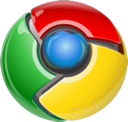Feed: The NeoSmart Files
Posted on: 15 February 2009 23:18
Author: Mahmoud Al-Qudsi
Subject: Does it GTK/QT/Win32 Really Matter for Chrome?
|
In the article, Ben Goodger, lead Chrome UI developer, states
But there's something we're not getting here. Obviously given enough brilliant programmers and a good team lead to keep the different codebases in sync, going with native APIs is the better approach. But the reasons Goodger is offering aren't very convincing. The problem is…. Google's Chrome for Windows doesn't look native. In fact, it's about as far from native Win32 as you can get. We had originally explained away the non-win32 looks by assuming it was because Google wanted an interface that was consistent across the different platforms and different at the same time from any of the operating systems native UI toolkits: in line with Google's vision of turning the browser into an OS, regardless of the platform beneath. A non-native UI that looks the same on Mac, Windows, and Linux would be the answer to such a browser OS. It would indicate that Chrome is its own product - from the codebase to the user experience - and that to the end user it shouldn't matter what OS you're on. And that in the future Google could ship a standalone (OS-free) browser that looks like Chrome and acts like Chrome, regardless of the platform beneath? Otherwise there is no good explanation for the horrendously-different user interface that comes with Chrome. It requires learning the tips & tricks to a whole new UI, and forgetting a number of "niceties" you may have been accustomed to (such as pressing the 'spacebar' to OK pop-up dialogs, etc.). With the preliminary screenshots of Chrome for Mac, the platform Chrome runs on begins to peek through. Does this mean that Google's vision of Chrome as its own OS has come to pass - with Google now content to just launch a cross-platform browser without attempting to lull users away from the platforms they've come to love? Whatever the case, it's sure to be interesting watching and waiting to see what Google has planned for its users. Whether its a cross-platform browser experience that's different enough to be the same across all platforms while retaining a feel of the platform or if it's paving the way for the OS to come it's quite obvious that the gears are now in motion and something big just might happen. |
 A recent article
A recent article 
No comments:
Post a Comment